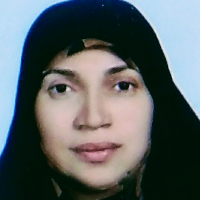Evaluation of the principal component and spatial patterns of social sustainability in cities of Chaharmahal and Bakhtiari province
Today, social challenges are one of the most important obstacles to achieving sustainability in the cities of developing countries. Therefore, recognition and geographical analysis of the factors affecting the social sustainability of cities are among the important goals and priorities of urban and regional planning. This research has been done by quantitative and survey method and using secondary data. In this study, with using the content validity index and content validity ratio, 19 objective indicators of social sustainability were selected and social sustainability of Chaharmahal and Bakhtiari cities measured and analyzed by using principal component analysis, spatial autocorrelation (Moran's I) and inverse distance weighting interpolation(IDW) methods. Findings of the research in the principal component analysis show that the 4 principal components (safety and security, health, population dynamism, literacy and education) with a total variance of 65.125%, explain the correlation between research variables to measure and evaluate the urban social sustainability of the province. Also, Morans Index with a value of -0.06 indicates the random spatial pattern of urban social sustainability in the province and the significance of spatial relationships of 5 urban centers in safety and security, 2 urban centers in health, 5 urban centers in population dynamics, 1 urban center in literacy and education and 4 urban centers in the composite index of social sustainability. The results of inverse distance weighting interpolation methode while showing the unfavorable situation of the principale components affecting urban social sustainability, indicate a more balanced spatial distribution of the components of population dynamism, literacy and education in the province than other components and the combined index of urban social sustainability.
-
Identifying and prioritizing appropriate strategies to organize the fabric of the central part of Qhazvin city with a sustainable urban regeneration approach using SWOT-AHP techniques
Manuchehr Habibi, Nafise Marsoosi *, Ismail Aliakbari
Human & Environment, -
Analysis of Infrastructure Indicators of Elderly-Friendly City in Mashhad Metropolis
Nafiseh Marsoosi *, Behzad Resideh, Mostafa Taleshi, Seyed Mehdi Moosa Kazemi
Journal of Urban Ecology Researches,


